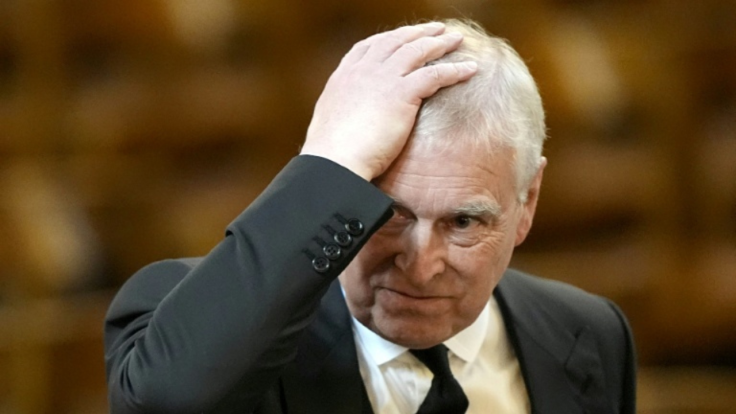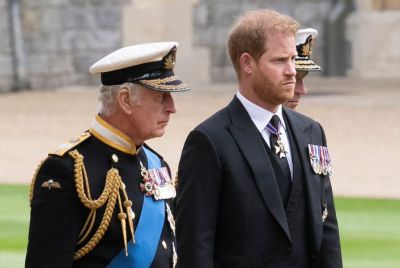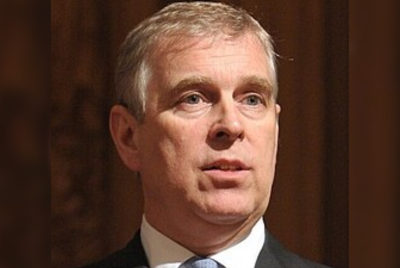Public Calls King Charles' Punishment Of Prince Andrew A 'Witch Hunt'
Buckingham Palace's announcement has provoked sharp public reaction, with vox-pops and media panellists divided over whether the move is necessary accountability or punitive overreach.

King Charles's decision to strip his brother of royal status has prompted some members of the public to call the move a 'witch hunt'.
The King's move, announced by Buckingham Palace, marks an unprecedented escalation in the fallout from Prince Andrew's ties to Jeffrey Epstein and the civil settlement with Virginia Giuffre; it has produced a sharp split between those who say the monarchy is finally being held to account and those who decry what they call a public piling-on.
Proponents of the King's action say it is necessary to protect the institution's reputation; critics, including vox-pop interviewees and some media panelists, describe a relentless, punitive campaign that they label a 'witch hunt.'
The dispute is playing out not only in Westminster and the courts of public opinion but across broadcast platforms and social media, where short clips of on-the-street reactions and commentary programmes have circulated widely.
Palace Statement and The Royal Decision
Buckingham Palace said His Majesty 'has today initiated a formal process to remove the Style, Titles and Honours of Prince Andrew,' adding that the former duke 'will now be known as Andrew Mountbatten Windsor' and that formal notice had been served to surrender his lease at Royal Lodge. The palace framed the measure as necessary despite Andrew's continued denials of wrongdoing.
The announcement follows months of renewed scrutiny after the 2022 settlement between Andrew and Virginia Giuffre, widely reported as being in the order of magnitude of £12 million ($16 million), though the precise figure was not officially disclosed.
That earlier settlement resolved a civil claim without an admission of liability and intensified public and parliamentary pressure on the crown.
'Witch Hunt' Versus 'Right Decision'
Short on-the-street interviews captured immediate divergence of opinion. In a round of vox-pop clips compiled by international news outlets and wire services, several Londoners used the phrase 'witch hunt' to describe the treatment of Andrew, saying the family drama had been elevated into a moral crusade against one individual.
@yahoouk What do the public think of Andrew being stripped of his titles and evicted from his home by King Charles? Following mounting pressure surrounding Andrew’s ties to late sex offender Jeffrey Epstein, the King has forced his brother out of his Windsor home and stripped him of his titles. This means that the former prince will no longer be known as “His Royal Highness”, “Duke of York”, “Earl of Inverness” or “Baron Killyleagh”. Andrew, now referred to as Andrew Mountbatten-Windsor, has also had his knighthood revoked and is expected to leave Royal Lodge and be relocated to a private property in the Sandringham Estate. #princeandrew #kingcharles #royals #windsor #sandringham
♬ original sound - Yahoo UK - Yahoo UK
Those exchanges, widely shared as video snippets, show the phrase being used as shorthand for perceived excess in public shaming.
Conversely, other interviewees praised Charles's resolve, arguing that the monarchy must distance itself from any figure whose associations damage the Crown's standing.
Analysts told reports how the King's action was motivated by institutional survival rather than personal enmity, and that the scale of the step underlines how politically unsustainable Andrew's remaining royal role had become.
Media Commentary and The Politics Of Language
Across broadcast and opinion programmes some commentators framed the story in terms of a broader cultural moment: critics of the decision likened the response to a 'witch hunt' or an overreach of what they called 'cancel culture,' while commentators on the other side described it as overdue accountability.

Clips from televised discussion shows and the social-media excerpts that follow them have amplified emotive language, cementing the polarised public narrative.
That rhetorical split matters: when high-profile figures or vox-pop snippets employ charged phrases like 'witch hunt,' they do more than express opinion; they shape legal and political debate.
MPs, campaigners for victims' rights and legal commentators have all weighed in, calling either for transparency about how settlements were funded and for parliamentary mechanisms to remove honours, or warning against hasty judgements before full evidence is aired.
King Charles's action may have resolved a short-term crisis for the institution, but the polarised public response, some calling it reparation, others a 'witch hunt,' shows the monarchy remains deeply entangled with modern Britain's faultlines.
© Copyright IBTimes 2025. All rights reserved.





















